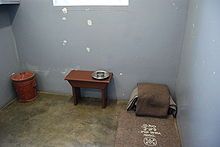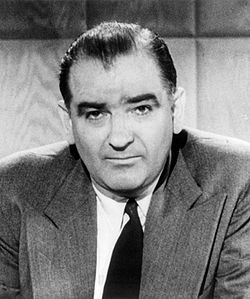This is your morning Open Thread. Pour your favorite beverage and review the past and comment on the future.
Find the past “On This Day in History” here.
February 12 is the 43rd day of the year in the Gregorian calendar. There are 322 days remaining until the end of the year (323 in leap years).
On this day in 1924, Rhapsody In Blue, by George Gershwin, performed for first time
Rhapsody in Blue premiered in an afternoon concert on February 12, 1924, held by Paul Whiteman and his band Palais Royal Orchestra, entitled An Experiment in Modern Music, which took place in Aeolian Hall in New York City. Many important and influential composers of the time such as John Phillip Sousa and Sergei Rachmaninoff were present. The event has since become historic specifically because of its premiere of the Rhapsody.
The purpose of the experiment, as told by Whiteman in a pre-concert lecture in front of many classical music critics and highbrows, was “to be purely educational.” It would “at least provide a stepping stone which will make it very simple for the masses to understand, and therefore, enjoy symphony and opera.” The program was long, including 26 separate musical movements, divided into 2 parts and 11 sections, bearing titles such as “True form of jazz” and “Contrast: legitimate scoring vs. jazzing”. Gershwin’s latest composition was the second to last piece (before Elgar’s Pomp and Circumstance March No. 1). Many of the numbers sounded similar and the ventilation system in the concert hall was broken. People in the audience were losing their patience, until the clarinet glissando that opened Rhapsody in Blue was heard. The piece was a huge success, and remains popular to this day.
The Rhapsody was performed by Whiteman’s band, with an added section of string players, and George Gershwin on piano. Gershwin decided to keep his options open as to when Whiteman would bring in the orchestra and he did not write out one of the pages for solo piano, with only the words “Wait for nod” scrawled by Grofe on the band score. Gershwin improvised some of what he was playing. As he did not write out the piano part until after the performance, we do not know exactly how the original Rhapsody sounded.
The opening clarinet glissando came into being during rehearsal when; “…as a joke on Gershwin, [Ross] Gorman (Whiteman’s virtuoso clarinettist) played the opening measure with a noticeable glissando, adding what he considered a humorous touch to the passage. Reacting favourably to Gorman’s whimsy, Gershwin asked him to perform the opening measure that way at the concert and to add as much of a ‘wail’ as possible.”

 On this day in 1990,
On this day in 1990,  Mandela was imprisoned on
Mandela was imprisoned on  On this day in 1950,
On this day in 1950,  On this day in 1828,
On this day in 1828,
Recent Comments